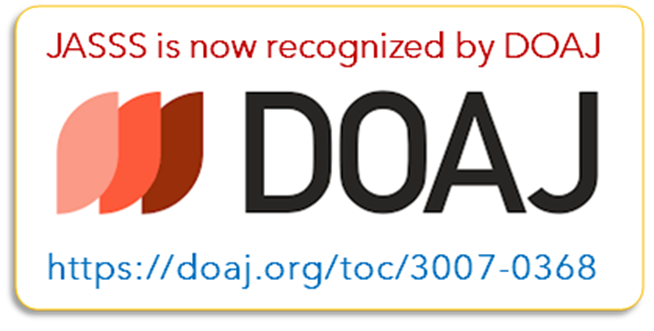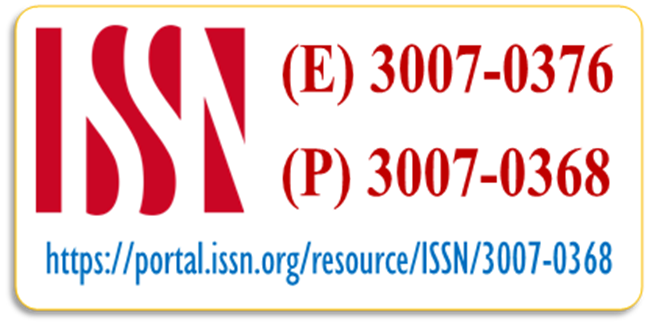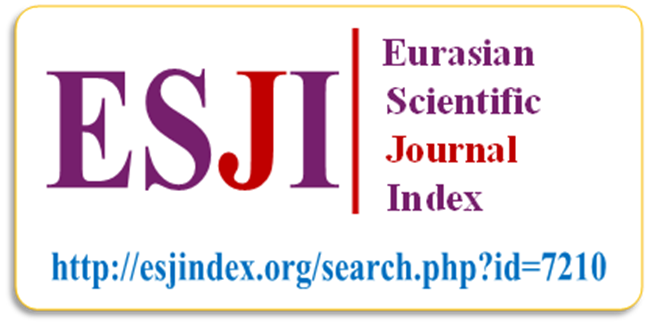Integrating Employability Skills in University Programmes: A Qualitative Inquiry into Curricular Practices and Challenges at Selected Universities in Zambia
DOI:
https://doi.org/10.5281/zenodo.17123326Keywords:
Higher Education, Employability skills, Integration, Curricular Practices, Challenges, ZambianAbstract
The increasing global demand for a workforce equipped with relevant employability skills has placed higher education institutions at the centre of preparing graduates for the 21st-century labour market. This study examined the curricular practices and challenges of integrating employability skills into Zambian university programmes to highlight possible strategies for enhancing graduate readiness for the labour market. Using a qualitative research approach, a case study design was employed to gain insights into the curricular practices and challenges associated with integrating employability skills into university programmes at two universities in Zambia. The study comprised a total of 106 participants, consisting of 96 students and 10 key informants, including lecturers and administrators from two universities, A and B, in Zambia. Semi-structured interviews were used to collect data from administrators and lecturers. Thematic analysis was used to identify and categorise common themes that emerged in curricular practices and challenges of integrating employability skills training in academic programmes. The study revealed that the two universities employed various practices to integrate employability skills into their degree programmes. These practices included embedding employability skills training into course content, practical work, simulations, group assignments, and industrial attachments. However, challenges such as faculty competence gaps, limited time for practical aspects, weak links between industry and academia, and inadequate structured integration of employability skills in the programmes persisted. The study recommended, among other things, the strengthening of industry partnerships with higher learning institutions, enhancing faculty development programmes, revising curricula by working in collaboration with HEA and labour industry organisations to integrate systematic skills, and increasing financial and logistical support for students' industrial attachments. Such strategies could help bridge the employability gap and align university education with labour market demands, and ultimately improve graduate work readiness and employability.
Downloads
References
Abelha, M., Fernandes, S., Mesquita, D., Seabra, F., & Ferreira-Oliveira, A. T. (2020). Graduate employability and competence development in higher education—A systematic literature review using PRISMA. Sustainability, 12(15), 5900. https://doi.org/10.3390/su12155900
African Union Commission. (2015). Agenda 2063: The Africa we want. Addis Ababa, Ethiopia: African Union Commission. https://au.int/en/agenda2063/overview
Ahmed, S. (2024). The Role of Higher Education in Employability.Retrieved from: https://www.researchgate.net/publication/387131463_The_Role_of_Higher_Education_in_Employability
Amarathunga, B., Khatibi, A., Talib, Z. M., Azam, S. M. F., & Tham, J. (2024). Graduate employability skills, trending avenues and research gaps: A systematic literature review and bibliometric analysis. Asian Education and Development Studies, 13(4), 320–339. https://doi.org/10.1108/AEDS-04-2024-0085
Andrews, J., & Higson, H. (2008). Graduate Employability, “Soft Skills” versus “Hard Skills” Business Knowledge: A European Study. Higher Education in Europe, 33, 411-422.
https://doi.org/10.1080/03797720802522627
Babbie, E. (2013). The practice of social research (13th ed.). Cengage Learning.
Brady, D. A. (2010). An exploratory study of work readiness in culinary arts and hospitality management [Doctoral dissertation, University of Louisville]. ThinkIR: The University of Louisville's Institutional Repository. https://ir.library.louisville.edu/etd/148
Braun, V., & Clarke, V. (2019). Reflecting on reflexive thematic analysis. Qualitative Research in Sport, Exercise and Health, 11(4), 589–597. https://doi.org/10.1080/2159676X.2019.1628806
Bridgstock, R. (2009). The graduate attributes we've overlooked: Enhancing graduate employability through career management skills. Higher Education Research & Development, 28(1), 31-44. https://www.tandfonline.com/doi/abs/10.1080/07294360802444347.
Campbell, S., Greenwood, M., Prior, S., Shearer, T., Walkem, K., Young, S., Bywaters, D., & Walker, K. (2020). Purposive sampling: complex or simple? Research case examples. Journal of Research in Nursing, 25(8), 652–661. https://doi.org/10.1177/1744987120927206
Cheng, M., Adekola, O., Albia, J. and Cai, S. (2022). Employability in higher education: a review of key stakeholders' perspectives. Higher Education Evaluation and Development, 16(1), pp. 16-31. https://doi.org/10.1108/HEED-03-2021-0025
Chew, C. M., Ng, L. Y., Mah, S. K., & Ng, Y. S. (2023). Development of a university-industry collaboration model towards work-ready engineering graduates. Research in Science & Technological Education, 41(2), 505–522. https://doi.org/10.1080/02635143.2021.1917535
Chickering, A. W., & Reisser, L. (1993). Education and identity (2nd ed.). Jossey-Bass.
Cohen, L., Manion, L., & Morrison, K. (2007). Research methods in education (6th ed.). Routledge.
Cole, D., & Tibby, M. (2013). Defining and developing your approach to employability: A framework for higher education institutions. York, UK: Higher Education Academy
Creswell, J. W., & Poth, C. N. (2018). Qualitative inquiry and research design: Choosing among five approaches (4th ed.). Sage Publications.
Curtis, D., & McKenzie, P. (2002). Employability skills for Australian industry: Literature review and framework development. Retrieved from: https://www.researchgate.net/publication/254581576_Employability_Skills_for_Australian_Industry_Literature_Review_and_Framework_Development
Dacre Pool, L., & Sewell, P. (2007). The key to employability: A practical model of graduate employability. Education + Training, 49(4), 277–289. https://doi.org/10.1108/00400910710754435
Daniels, J., & Brooker, J. (2014). Teaching and learning in higher education. International Journal of Teaching and Learning in Higher Education, 26(2), 140-151. https://www.google.com/search?q=https://www.isetl.org/ijtlhe/pdf/IJTLHE1719.pdf
de la Harpe, B., Radloff, A., & Wyber, J. (2000). Quality and generic (professional) skills. Quality in Higher Education, 6(3), 231–243. https://doi.org/10.1080/13538320020005972
Dearing, R. (1997). Higher Education in the Learning Society: Report of the National Committee of Inquiry into Higher Education. HMSO. https://www.google.com/search?q=https://dera.ioe.ac.uk/14872/1/9707.pdf
Farenga, S. A., & Quinlan, K. M. (2016). Classifying University Employability Strategies: Three Case Studies and Implications for Practice and Research. Journal of Education and Work, 29(7), 767–787. https://doi.org/10.1080/13639080.2015.1064517
Farooqui, J. F., & Gupta, R. (2022). Mapping Life Skills Education in Indian Schools: Instruction and Assessment. EdTechReview. Retrieved from: https://www.edtechreview.in/trends-insights/insights/mapping-life-skills-education-in-indian-schools-instruction-and-assessment/
Finch, D., Hamilton, L., Baldwin, R., & Zehner, M. (2013). An exploratory study of factors affecting undergraduate employability. Education + Training, 55(7), 681–704. https://doi.org/10.1108/ET-07-2012-0077
Government of the Republic of Zambia. (2006). Vision 2030: A prosperous middle-income nation by 2030. Ministry of Finance and National Planning. https://www.parliament.gov.zm/sites/default/files/documents/publications/Vision%202030.pdf
Guardia, L., Mancini, F., Jacobetty, P., & Maina, M. (2021). Graduates' Employability Skills in East Africa. Journal of Teaching and Learning for Graduate Employability, 12(2), 169–184. https://doi.org/10.21153/jtlge2021vol12no2art988
Guba, E.G. (1981). Criteria for assessing the trustworthiness of naturalistic inquiries. Educational Communication and Technology Journal 29 (1981), 75–91.
Hart, P. D. (2008). How should colleges assess and improve student learning? AAC&U Publications. https://www.google.com/search?q=https://www.aacu.org/publications-research/periodicals/how-should-colleges-assess-and-improve-student-learning.
Iredale, A., Orr, K., Bailey, W., & Wormald, J. (2013). Confidence, risk, and the journey into praxis: Work-based learning and teacher development. Journal of Education for Teaching, 39(2), 197–208. https://doi.org/10.1080/02607476.2013.765192
Iwara, I. O. (2025). Graduate Employability in Africa: Reimagining Rural-Based Entrepreneurial University Paradigm. Sustainability, 17(10), 4628. https://doi.org/10.3390/su17104628
Kamanga, N., Jonsson, D., & Phiri, W. (2023). K-Norman financing model for financial sustainability in Zambian public universities. International Journal of Commerce and Management Research, 9(2), 11–22. https://www.managejournal.com/assets/archives/2023/vol9issue2/9018-452.pdf
Kaufman, K. J. (2013). 21 Ways to 21st Century Skills: Why Students Need Them and Ideas for Practical Implementation. Kappa Delta Pi Record, 49(2), 78–83. https://doi.org/10.1080/00228958.2013.786594
Kinash, S., McGillivray, L., & Crane, L. (2018). Do university students, alumni, educators and employers link assessment and graduate employability? Higher Education Research & Development, 37(2), 301–315. https://doi.org/10.1080/07294360.2017.1370439
Koseda, E., Cohen, I. K., Cooper, J., & McIntosh, B. (2024). Embedding employability into curriculum design: The impact of Education 4.0. Policy Futures in Education, 0(0), 1–13. https://bura.brunel.ac.uk/bitstream/2438/30035/.
Lounsbury, J., Steel, R., Gibson, L., & Drost, A. (2008). Personality Traits and Career Satisfaction among Human Resource Professionals. Human Resource Development International, 11(4), 351–366. https://doi.org/10.1080/13678860802261215
Lowden, K., Hall, S., Elliott, D., & Lewin, J. (2011). Employers' perceptions of the employability skills of new graduates. Edge Foundation Report. https://www.google.com/search?q=https://www.edge.co.uk/publications/employers-perceptions-of-the-employability-skills-of-new-graduates/
Mayer, J. D., Caruso, D. R., & Salovey, P. (2016). The ability model of emotional intelligence: Principles and updates. Emotion Review, 8(4), 1–11. https://doi.org/10.1177/1754073916639667
Mbwambo, J. S. (2024). Employability trends in Africa: The role of higher education. East African Journal of Management and Business Studies, 4(1), 47–54. https://doi.org/10.46606/eajmbs2024v04i01.0041
McCowan, T. (2014). Can Higher Education Solve Africa’s Job Crisis? Understanding Graduate Employability in Sub-Saharan Africa. British Council. https://www.britishcouncil.org/sites/default/files/graduate_employability_in_ssa_final-web.pdf
Moono, M., & Rankin, N. (2013). Education and employment in Zambia. International Growth Centre, Stellenbosch University https://bit.ly/3n6LGq0
Mwamba, M. (2025). Exploring the Integration of Employability Skills Training in University Degree Programs for Graduate Work Readiness in Zambia [Master’s thesis, University of Zambia]. UNZA Institutional Repository. https://dspace.unza.zm/handle/123456789/932.
Mwelwa, K., & Mawela, A. S. (2021). Effectiveness of internships as pedagogical practices in promoting employability skills amongst graduating students in selected social science degree programmes in Zambia. International Journal of Educational Methodology, 7(4), 649–668. https://doi.org/10.12973/ijem.7.4.649
Mwelwa, K., Lebeloane, L.D.M., & Mawela, A.S. (2021). Relevance of Selected Social Science Degree Programmes on Skills Development and Graduate Employability in Zambia. Journal of Teaching and Learning for Graduate Employability, 12(2), 131–147. https://www.google.com/search?q=https://ojs.unisa.edu.au/index.php/JTLEG/article/view/1785.
Nasheeda, A. K. (2019). A narrative systematic review of life skills education: effctiveness, research gaps and priorities. International Journal of Adolescence and Youth, 362-379.
O'Banion, T. (2011). Focus on learning: A learning college reader. Community College Journal of Research and Practice, 35(1), 1-10.
Pitman, T., & Broomhall, S. (2009). Australian higher education: Student satisfaction and performance. Australian Journal of Education, 53(3), 317-330. https://journals.sagepub.com/doi/abs/10.1177/000494410905300305.
Rowe, A. D., & Zegwaard, K. E. (2017). Developing graduate employability skills and attributes: Curriculum enhancement through work-integrated learning. Asia-Pacific Journal of Cooperative Education, 18(2), 87–99. https://www.ijwil.org/files/APJCE_18_2_87_99
San Francisco Bay University. (2024, September 24). Behind the curtain of higher education: Faculty aren’t trained. https://www.sfbu.edu/article/behind-curtain-higher-education-faculty-arent-trained.
Scott, F.J., Connell, P., Thomson, L.A., & Willison, D. (2019). Empowering students by enhancing their employability skills. Journal of Further and Higher Education, 43(5), 692-707.https://www.google.com/search?q=https://www.tandfonline.com/doi/full/10.1080/0309877X.2018.1432422
Shoko, G. (2023). Conceptualising challenges of tertiary education financing in Africa. International Journal of Humanities, Social Sciences and Education, 10(1), 1–8. https://doi.org/10.20431/2349-0381.1001001
Sreeramana, A., Suresh, K., & Pavithra, K. (2015). Methods and Approaches for Employability Skill Generation in Higher Educational Institutions. Munich Personal RePEc Archive. Retrieved from https://mpra.ub.uni-muenchen.de/71995.
Srinivas Rao A., Suresh Kumar P. M., & Aithal P. S., (2015), Strategic planning in higher education institutions - A case study of SIMS - VISION 2025, International Journal of Educational Science and Research; Vol.5 Issue 2, April 30, pp. 29-42. ISSN 2249-6947.
Tight, M. (2023). Employability: A core role of higher education? Research in Post-Compulsory Education, 28(4), 551–571.
Tomlinson, M. (2012). Graduate employability: A review of conceptual and empirical themes. Higher Education Policy, 25(4), 407–431. https://doi.org/10.1057/hep.2011.26
Umar, T., & Zubair, F. (2024). Cross cultural counseling: A challenge to the counseling profession. https://doi.org/10.13140/RG.2.2.32640.20487 .
United Nations. (2015). Transforming our world: The 2030 agenda for sustainable development. https://sdgs.un.org/2030agenda.
Vasileiou, K., Barnett, J., & Thorpe, S. E. (2018). Characterising and justifying sample size sufficiency in interview-based studies: systematic analysis of qualitative health research over a 15-year period. BMC Med Res Methodol, 18(148). Retrieved from https://doi.org/10.1186/s12874-018-0594-7.
Yin, R. K. (2018). Case study research and applications: Design and methods (6th ed.). Sage Publications.








